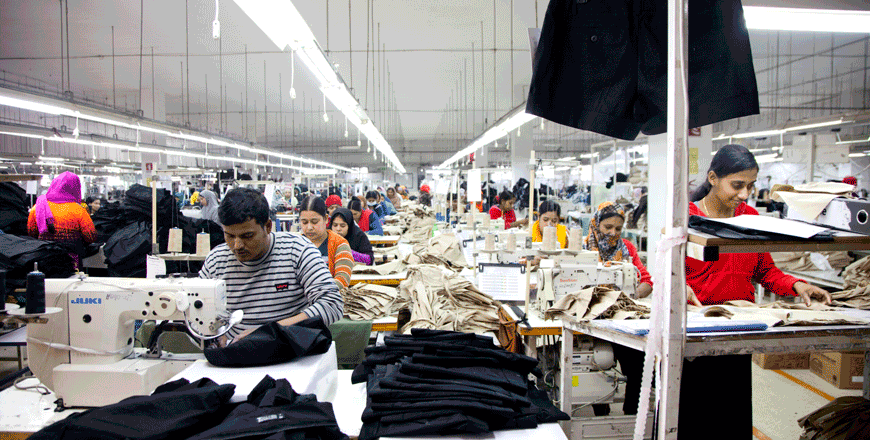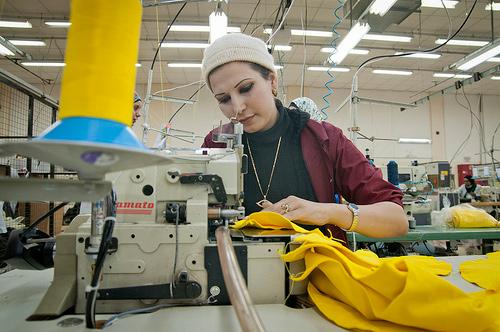You are here
Tamkeen launches campaign to improve labour standards in textile, garment industries
By Maria Weldali - Oct 30,2024 - Last updated at Oct 30,2024

The campaign examines the working environment in micro, small, and medium-sized sewing workshops (File photo)
AMMAN — Thousands of workers in Jordan's textile and garment industry are facing "harsh" conditions, with low wages and limited protections worsened by a rise in subcontracting practices.
In response to these challenges, Jordanian non-profit organisation Tamkeen is set to launch a campaign aimed at highlighting the impact of subcontracting networks on workers in factories and small workshops across the Kingdom.
The campaign will examine the working environment in micro-, small-, and medium-sized sewing workshops, with Tamkeen offering recommendations to improve labour standards in the sector.
The textile and garment sector is one of Jordan’s largest economic industries, providing employment to tens of thousands of workers.
Current statistics indicate that 77,730 individuals are employed within development zones, with 27 per cent Jordanian nationals and 73 per cent migrant workers, most of whom are women from South and East Asia.
Although exact figures for small workshops are still unavailable, estimates suggest around 2,000 workshops operate nationwide, employing some 8,000 workers. Most of these workers reportedly contend with challenging conditions, such as long hours, low wages, and minimal social protection.
“Every worker deserves a safe and fair workplace,” Tamkeen stated.
Some of these workers are employed in factories operating under a subcontracting system, and investigations revealed that these contracts are often unclear and lack transparency. This imposes financial challenges on small and medium-sized factories, causing delays in wage payments to workers.
Linda Kalash, director of Tamkeen, emphasised the importance of enhancing legal protections for workers and revisiting their working conditions to ensure their basic rights, especially in the garment and textile sector.
Kalash also called for mechanisms to support small and medium-sized factories and boost their productivity, which would positively impact their workers.
Related Articles
AMMAN — Poor ventilation, plumbing, sanitary services, failure to renew work permits and delayed payments are some of the violations that Ba
AMMAN — A legal aid organisation has condemned the “undignified” work conditions some labourers experience in the Qualified Industrial Zones
A new unified contract for all migrant workers in Jordan’s garment sector was announced at Better Work Jordan’s international buyers’ forum in the capital on Thursday.














